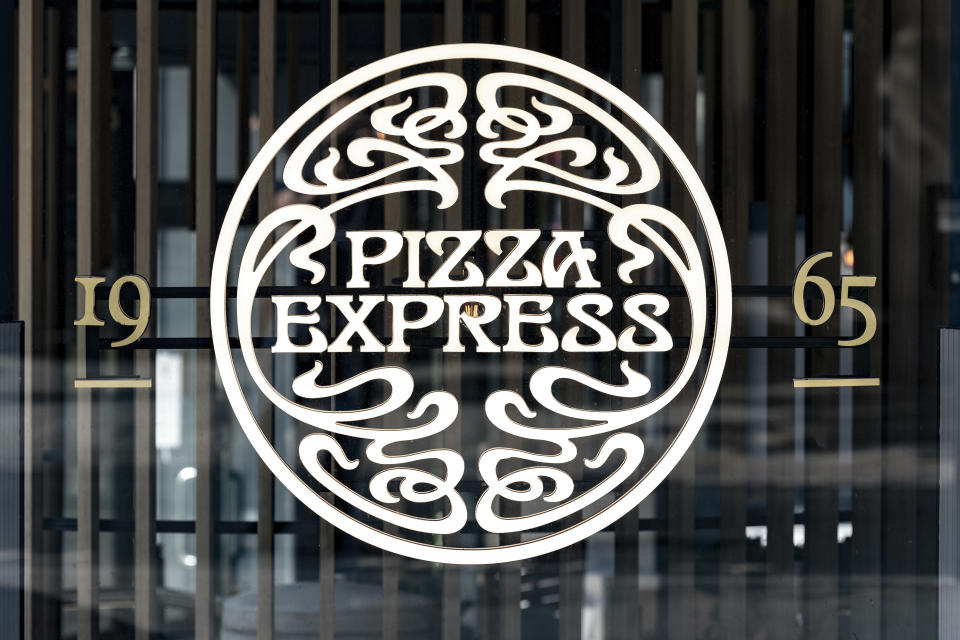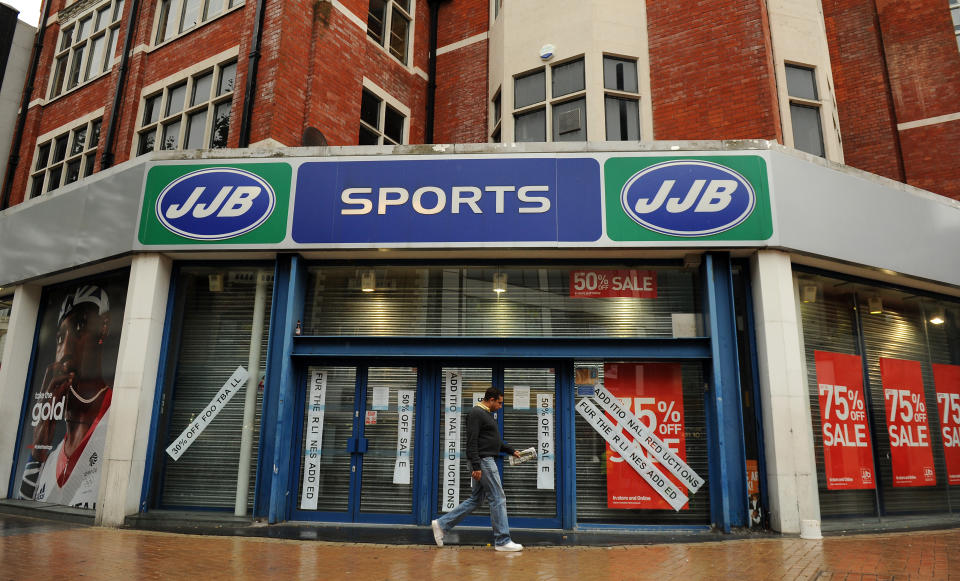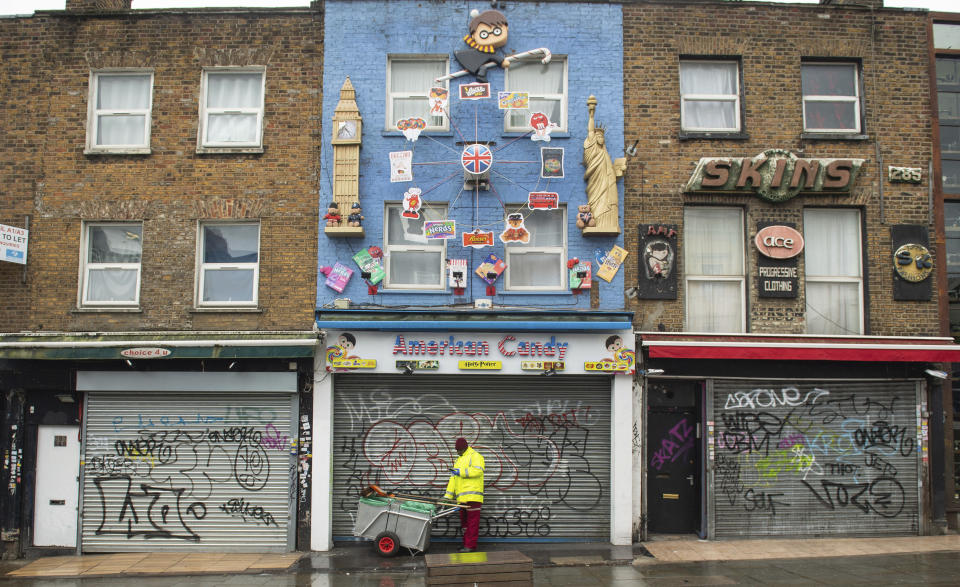How CVAs are reshaping Britain's high streets

This year is expected to be a record one for shop and restaurant closures in the UK, with the COVID-19 pandemic sparking the sharpest economic downturn in 300 years.
Over 3,500 shops have already been closed this year, according to the Centre for Retail Research, and many more are expected to shut as the government starts to withdraw economic support.
“It’s probable that this year will be the worst one in history,” Jonathan De Mello, head of retail consultancy at Harper Dennis Hobbs, told Yahoo Finance UK. “We’ve had months of no cashflow for retailers. That can’t be sustainable.”
Many high street names are shutting locations using what’s known as company voluntary arrangements (CVAs) — a controversial mechanism that allows companies to get out of lease commitments or force rents lower.
Pizza Express is said to be the latest company considering using a CVA. Sky News reported last week that the restaurant chain is preparing a CVA that would see around 75 of its 470 UK restaurants close. A spokesperson for Pizza Express declined to comment.
CVAs were first pioneered on the High Street over a decade ago as a way to try and save struggling businesses by letting them shut underperforming stores. Their use has grown in recent years but CVAs have developed a controversial reputation, with some saying they give too much power to tenants.
What is a CVA?
CVA stands for company voluntary arrangement. It is a type of insolvency process, typically used as an alternative to putting a company into full administration.
Companies use them when they can no longer sustainably afford to pay their debts. The agreements allow companies to renege on some debts to make the business more sustainable.
The idea is to “come out of that particular process leaner and fitter as a result,” De Mello said, by “basically getting rid of costs or reducing them substantially.”
Typically, CVAs are used by retailers or restaurants to get out of leases on shops or restaurants that are loss making or to negotiate lower rents.
How do they work?
CVAs involve getting all a company’s creditors around a table and having them vote on proposals put forward by the company. Creditors typically include lending banks, landlords, and suppliers. A majority must approve a CVA for it to become legally enforceable.
The logic for creditors to approve closures and reduced rents is to keep the business going and allow it to repay at least some of its debts, rather than collapsing and failing to pay any of its debts.
“A CVA has to provide more to the creditors being affected than the alternative form of administration available, typically insolvency or administration,” Richard Fleming, European head of restructuring at Alvarez & Marsal, told Yahoo Finance UK.
When were they invented?
CVAs were created by a revision to the Insolvency Act in 1986.
However, they were “very, very rarely used for anything” for decades, said Fleming, who pioneered their use in retail. Fleming led the CVA of JJB Sports in 2007, the first high-profile use of the agreements on the high street.

“I just had the idea that, given one of the big structural issues here was it needed to lose a big chunk of its stores, actually couldn’t we just put something up that sought to discreetly deal with the landlords?” Fleming said.
“At that time, most of the advisors thought I was crazy. When we started looking at it we thought: this might work.”
How many companies have used them?
Typically the number of companies that initiate a CVA is in the single or low double digits each year.
The Centre for Retail Research, which tracks the impact of CVAs, said 313 shops were closed in 2019 using CVAs, costing over 26,000 jobs. Its found CVA usage increased by 30% between 2015 and 2019.
Well-known names that have used CVAs in the past include New Look and Mothercare, while the likes of AllSaints, Travelodge, and Wagamama-owner The Restaurant Group have all used CVAs so far this year.
“Some retailers have gone into CVA repeatedly, then come back again, then eventually gone into administration,” De Mello said.
Why are they controversial?
CVAs have developed a reputation in recent years as a tool used by retailers to bully landlords. Critics say they give too much power to companies to simply walk away from rent obligations and force lower rents on landlords.
Part of the problem is the way voting on proposals works. Creditors are given equal footing and landlords are typically outnumbered.
“Most landlords could vote against it and it would still go through because if the banks want it and the suppliers want it, it’ll still go through anyway regardless of what the landlords want,” De Mello said.
Banks and suppliers typically don’t face new repayment terms and are happy to wave CVAs through, reasoning that lower costs for the borrowing business make debt repayment more secure.
“The banks and all the suppliers, they have a much bigger say financially over the CVA process,” De Mello said. “Most of them will want their orders fulfilled or the banks will want their debt repaid.”

However, critics say CVAs are increasingly being used by some retailers to improve profit margins rather than turn around struggling businesses.
Iain White, a partner at law firm Clifford Chance, said in a report last year: “Used in the right circumstances they can be a critically important rescue tool.
“Unfortunately, the CVA is gaining the same sort of reputation as administration pre-packs did a few years ago, with suggestions that it is being used in inappropriate ways.”
Do they work?
While the aim of a CVA is to help a firm get back on a firmer footing, most companies that use them ultimately end up failing. JJB Sports collapsed into administration in 2012, for example.
“Research we’ve done where we’ve looked at CVAs and the outcome of those CVAs over the years found that 70% of retailers that go into CVAs ultimately fail and go into full administration,” De Mello said. “You could very much argue it’s a stay of execution.”
Fleming defends the use of CVAs, saying they ultimately deliver more value to creditors.
“More space is occupied for longer,” he said. “More stores tend to get retained and most of them get retained for longer than other forms of insolvency, particularly pre-pack.
“Even though lots of businesses that do a CVA might go on and fail, it’s a bit like if you walk into an A&E ward and you’ve suffered a trauma — not everyone survives that trauma but some do.”

 Yahoo Finance
Yahoo Finance 